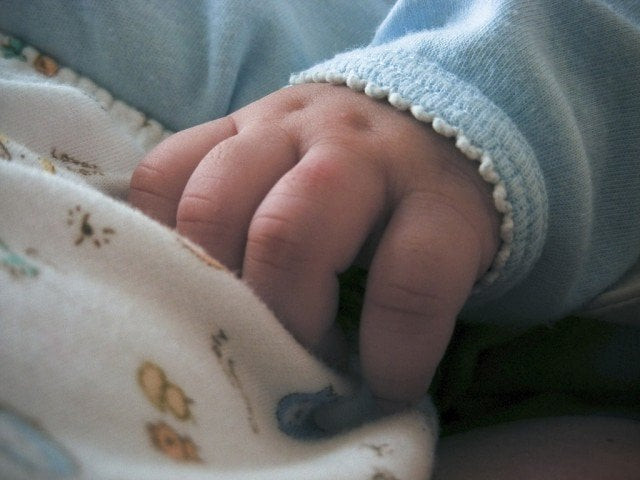A dangerous union: Children of destiny
In Charsadda, grieving parents try to make sense of genetic disorders in their offspring

In Charsadda, grieving parents try to make sense of genetic disorders in their offspring. PHOTO: FILE
Around 33 kilometres from the provincial capital, in Charsadda, is a village where a large number of children are born with genetic disorders. For the residents of Mian Kalay, most of whom are illiterate, this is a mystery no one can put a finger on. Some villagers believe lack of clean drinking water might be the reason for the disabilities among their offspring. But it isn’t.
A cursed land
Locals tell The Express Tribune they have no clue why such a large number of children are born with genetic disorders, including visual impairments. Some even claim the village has been cursed, which is why nearly every household has a differently-abled child. Most lament lack of finance prevents them from getting their child treated.

Since there is no school for special children, many do not attend school at all. Nor do these children play. They are dependent on others for their mobility, deprived of the little pleasures of life that other children take for granted.
Broken dreams
Lubaba, 9, is a pint-sized girl who suffers from stunted growth. “I wish to go to school and become a schoolteacher, but I cannot materialise my dream because of my physical structure. I can’t stand on my feet and instead use a wheelchair, which my brother has to push around,” she says. “Why am I like this? Maybe God is angry with me. My disability has given me feeling of inferiority. Pity and ridicule from people make me feel isolated from society.”
Parents, like their children, relive this grief every day. “My 14-year-old son is disabled. He cannot play cricket with other children of his age. I’m worried about his future; who will take care of him after me?” wonders Niaz Ali, who is married to his cousin. Another villager, whose sister is differently-abled and doesn’t know why, also married a cousin. And thus begins to unravel a trend that is due to no curse of man or wrath of God.
Mystery unfolds
Hesam Bacha, a member of the village council, says around 60-70 children in the village are differently-abled. He adds a few months ago a team of doctors including the district health officer (DHO) visited the village and took tests of the children. The doctors then concluded the main factor behind birth disorders was intermarriages.

According to findings of the Demographic and Health Survey 2012-13 conducted under the authority of the Ministry of National Health Services, 50% of all marriages in Pakistan are between cousins. However, a study conducted by Dr Muhammad Aslam Khan, founding head of the Human Genetics & Molecular Biology Department at University of Health Sciences, Lahore in 2014, stated nearly 82.5% of parents in Pakistan are blood-relatives of first, second or third generations. Of these, 6.3% hail from the same extended families of castes while 6.8% are immediate cousins. Only about 4.4% of couples in Pakistan are not somehow related to each other.
Medical experts have continually stressed on the inherent dangers of intermarriages, claiming it increases the risk of birth defects, club feet, metabolic disorders, thalassemia, and other health complications. But without a change in opinions and awareness by religious leaders, many generations to come will grow up like Lubaba, blaming themselves for no fault of their own.
Published in The Express Tribune, January 11th, 2016.













COMMENTS
Comments are moderated and generally will be posted if they are on-topic and not abusive.
For more information, please see our Comments FAQ